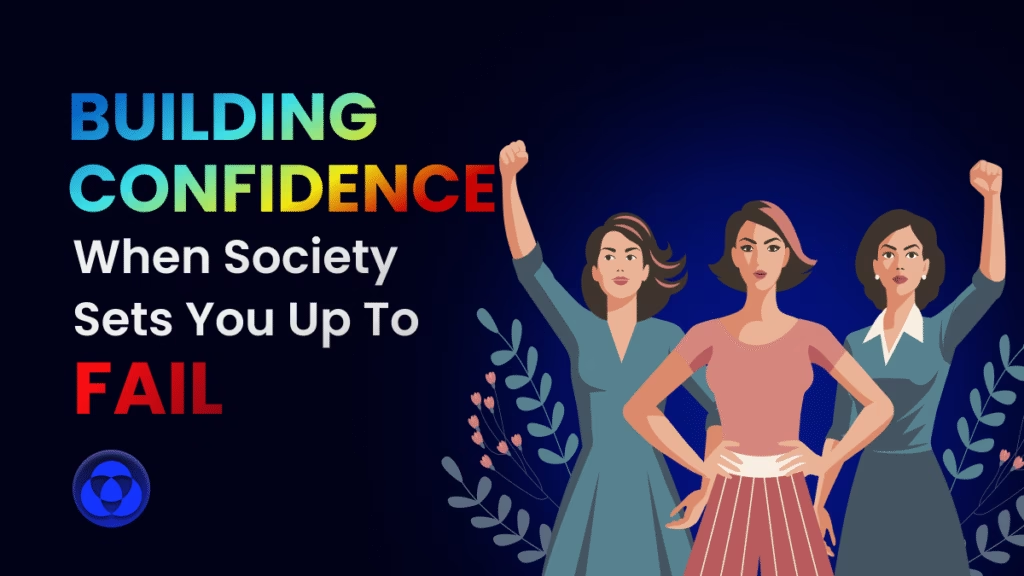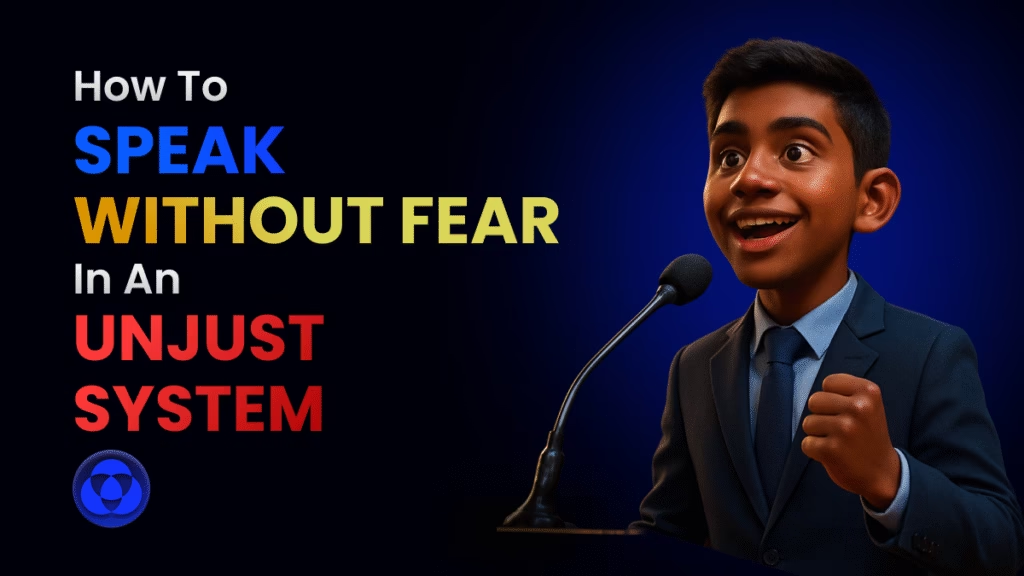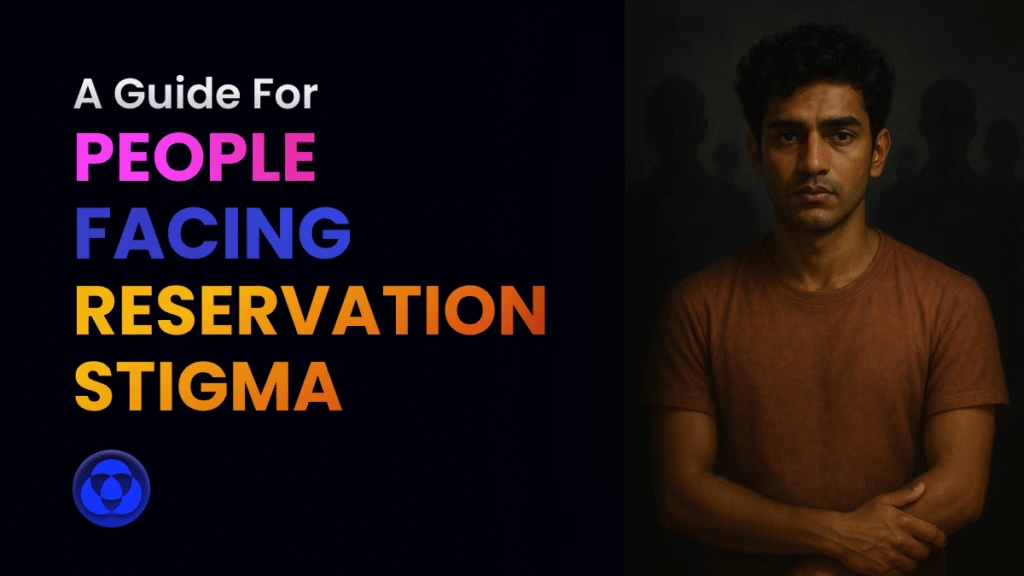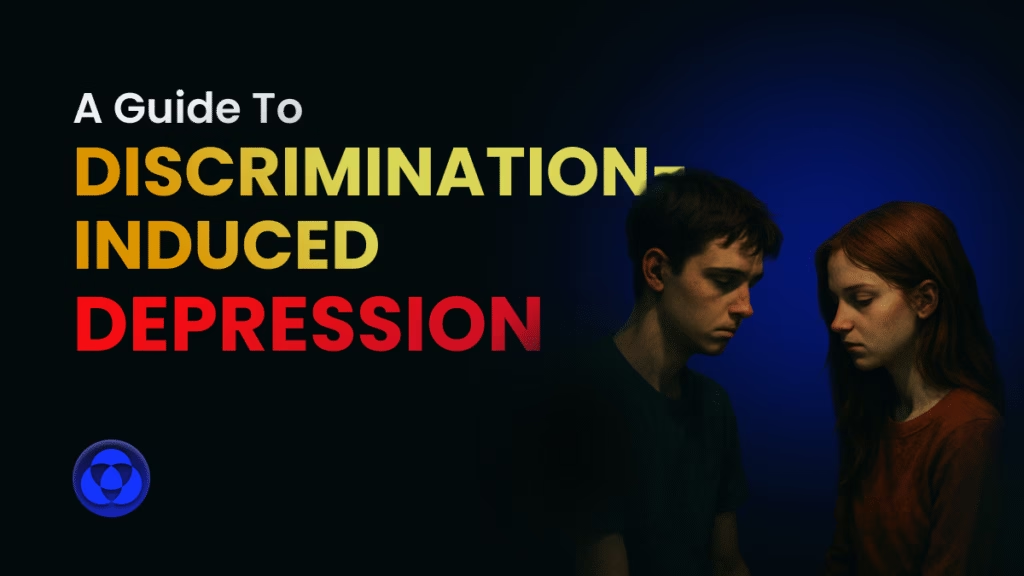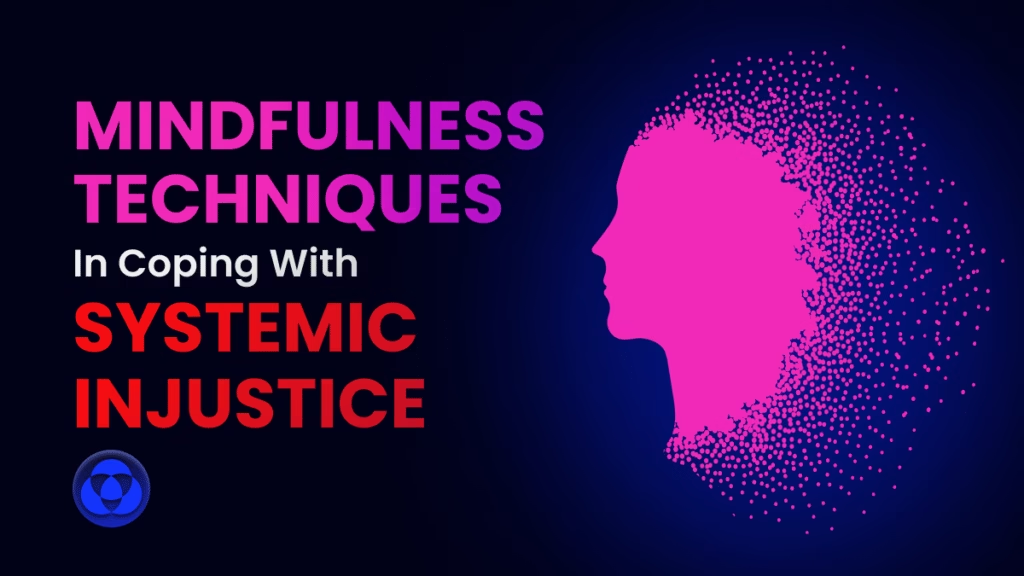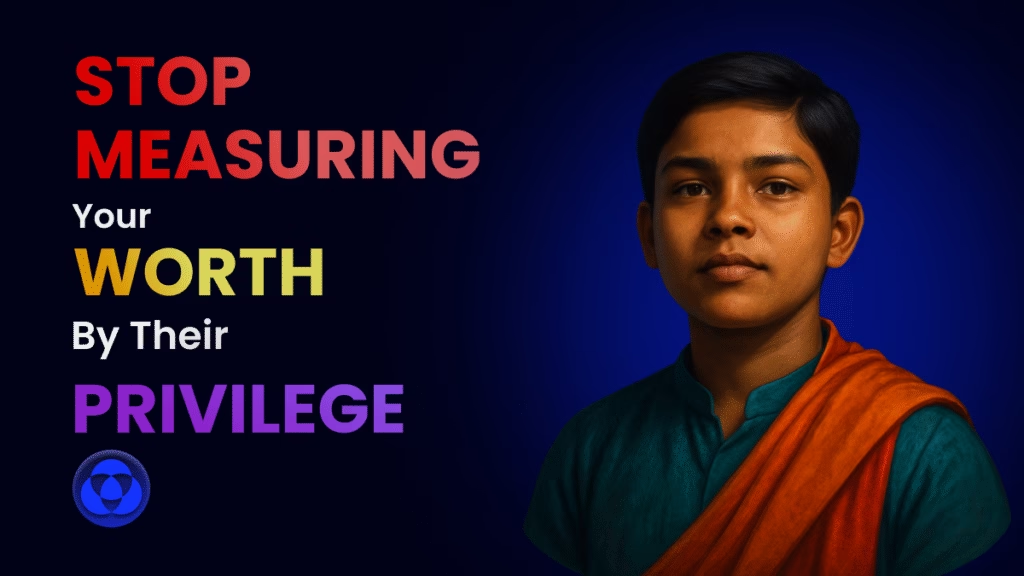Have you ever felt like no matter how hard you try, society still finds ways to make you doubt yourself? That nagging voice questioning if you truly belong in that classroom, that job interview, or that leadership position? If so, you’re not alone. For many Bahujans and individuals from marginalized communities, confidence isn’t simply a personal challenge—it’s a battle against generations of systemic messaging that says “you don’t belong here” or “people like you don’t succeed in these spaces.”
This article explores why many Bahujans struggle with confidence not because they lack ability, but because they’ve been repeatedly told—directly or indirectly—that they are not enough. We’ll examine how systemic barriers create self-doubt, why breaking free from these limitations matters, and most importantly, practical steps to build unshakable confidence despite a society that sometimes seems designed to make you fail.
How Society Creates Self-Doubt in Marginalized Communities
The Weight of Invisible Barriers
Imagine running a race where some participants start miles ahead, others have clear paths, while you face hurdles at every turn. This is how systemic discrimination operates—creating obstacles that aren’t always visible but significantly impact your journey.
For Bahujans, these barriers appear in multiple forms:
Educational Gatekeeping: From an early age, many Bahujan children attend schools with fewer resources, face biased treatment from teachers, or encounter curricula that rarely reflect their histories and experiences. A 12-year-old student once shared, “I never read about people who looked like me in my textbooks. It made me wonder if people like me ever did anything important.”
Limited Representation: When you rarely see people who share your background in positions of power, it becomes harder to envision yourself in those roles. As one college student put it, “In my entire engineering program, I couldn’t find a single professor from my community. I started wondering if I was trying to enter a space where I didn’t belong.”
Workplace Discrimination: From subtle exclusion from important networks to outright discrimination in hiring and promotions, many Bahujans face workplace environments that undermine their confidence daily. Microaggressions like “You speak so well!” or “You’re not like others from your community” create a constant sense of being an outsider.
Cultural Messaging: Movies, advertisements, and media often portray success with specific appearances and backgrounds, rarely celebrating the diversity of human achievement. These subtle messages reinforce who “belongs” in certain spaces and who doesn’t.
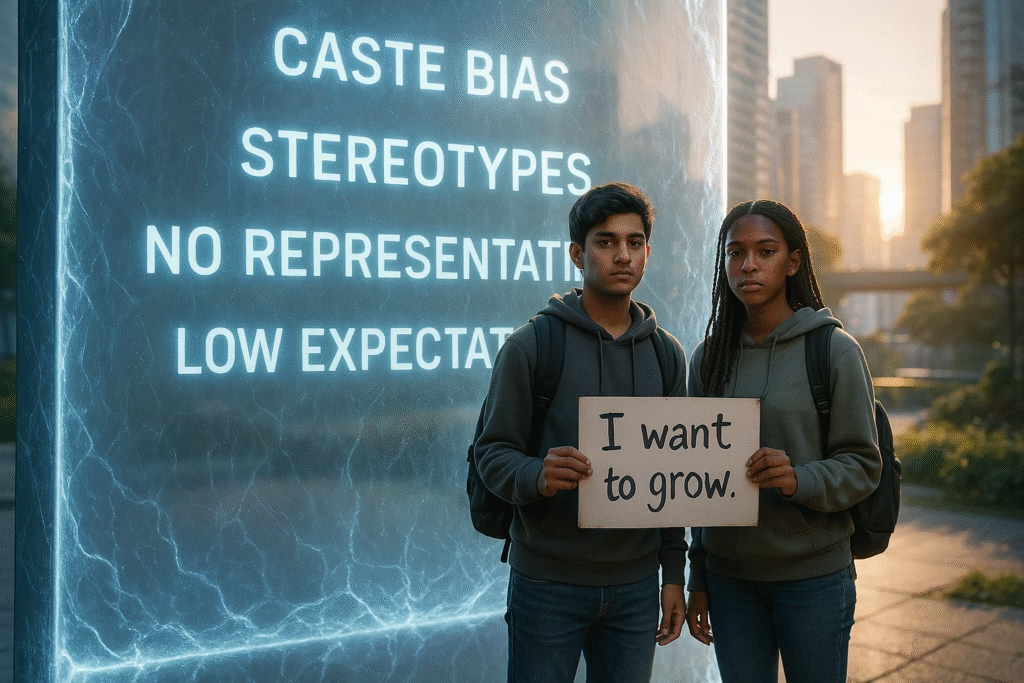
The Psychological Impact of Always Being “The Other”
These barriers don’t just limit opportunities—they shape how we see ourselves. Research in social psychology shows that constantly being treated as “less than” creates profound psychological effects:
Imposter Syndrome: Many high-achieving Bahujans report feeling like frauds despite their accomplishments. They worry they’ve succeeded through luck rather than merit and fear being “found out.” As one professional shared, “Even after graduating top of my class, I spent my first year at work convinced they hired me to fill a quota.”
Stereotype Threat: The fear of confirming negative stereotypes about one’s group can actually impair performance. Studies show that simply being reminded of one’s marginalized identity before a test can lower scores—not because of ability, but because mental energy gets diverted to fighting stereotypes.
Internalized Oppression: Perhaps most damaging is when we begin to believe the limitations society places on us. We might think, “Maybe people like me aren’t meant for leadership” or “Perhaps I should aim lower.” These thoughts aren’t natural—they’re planted by systems designed to maintain existing power structures.
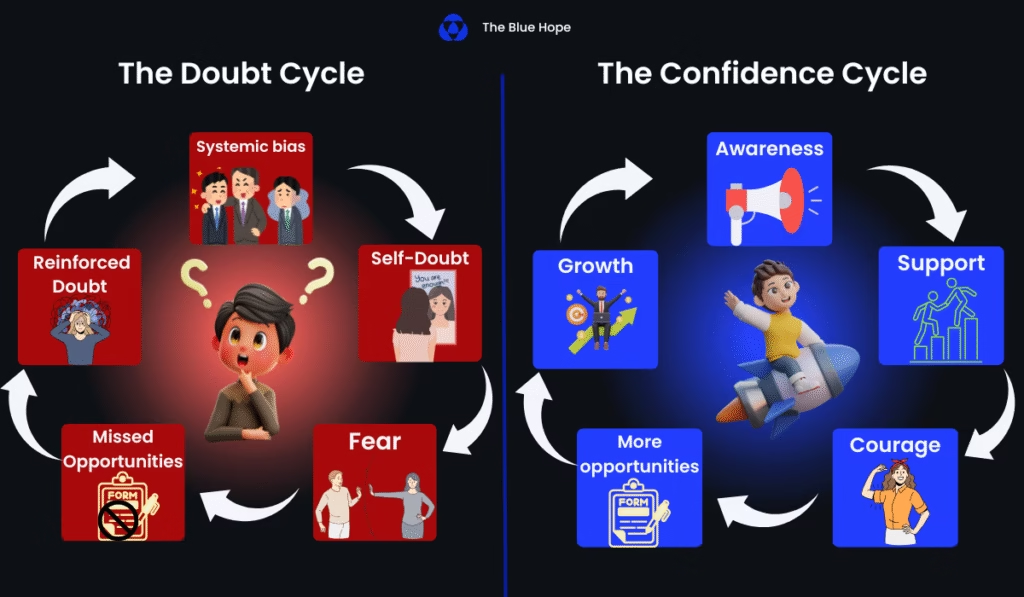
Stories of Resilience: Finding Confidence Despite the Odds
Despite these challenges, countless Bahujans have found ways to build confidence and succeed on their own terms. Their stories offer powerful lessons in resilience.
Riya’s Journey: Growing up in a rural village, Riya was told education wasn’t for “girls like her.” Teachers overlooked her raised hand, and relatives questioned why she bothered studying. Today, she’s a software engineer who mentors other young women. “The turning point came when I realized that my worth wasn’t determined by what others thought I could achieve,” she explains. “I started collecting evidence of my capabilities instead of collecting others’ opinions.”
Suraj’s Experience: As the first in his family to attend college, Suraj felt constantly out of place among peers who seemed to navigate campus life effortlessly. “I didn’t know the unwritten rules—how to talk to professors, how to network, even how to study effectively,” he recalls. “But I realized many of us were feeling the same way. We formed a study group where we could ask ‘stupid questions’ without judgment. That community became my confidence foundation.”
Dr. Meena’s Perspective: Now a respected physician, Dr. Meena remembers being told by a high school counselor to “set more realistic goals.” She shares, “Every achievement became my quiet rebellion. Each time someone suggested limits for me, it added fuel to my determination. I learned to transform discouragement into motivation.”
These stories share common threads: recognizing external barriers as separate from personal worth, finding supportive communities, and redefining success on one’s own terms.
Building Confidence from the Inside Out: Practical Strategies
Building confidence when society sets you up to fail requires intentional practices. Here are strategies that have helped many Bahujans develop unshakable self-belief:
1. Recognize Internalized Doubt for What It Is
The first step in building confidence is understanding that many of your self-doubts aren’t actually yours—they’re borrowed from a society that benefits from your uncertainty.
Practice: Keep a “doubt journal” for one week. Each time you experience self-doubt, write it down. Then ask: “Is this truly my thought, or is it something I’ve been taught to believe about myself or people like me?” This simple awareness can begin to loosen doubt’s grip.
Remember: Thoughts like “I don’t belong here” or “I’m not qualified enough” often reflect systemic messaging rather than reality. Labeling these thoughts as “societal programming” rather than “my truth” creates distance between you and the doubt.
2. Reclaim Your Narrative Through Knowledge
Understanding the history of systemic oppression helps you see your struggles in context rather than as personal failings.
Practice: Dedicate time each week to learn about Bahujan history, leaders, and achievements. Knowledge of how your community has persevered despite obstacles provides powerful counter-narratives to societal messaging.
Resource Suggestion: Create a personal “inspiration library” with books, articles, and videos featuring people from your community who have succeeded in your field of interest. Return to these resources when doubt creeps in.
3. Celebrate Small Wins Deliberately
Society often minimizes or ignores the achievements of marginalized communities. Counter this by becoming your own biggest champion.
Practice: Keep a “victory log” where you record achievements both big and small. Completed a presentation despite nervousness? Spoke up in a meeting? Applied for a position that seemed out of reach? All these deserve recognition.
Community Approach: Form a “win circle” with friends where you regularly share and celebrate each other’s accomplishments, no matter how small they might seem.
4. Build a Strategic Support Network
Surrounding yourself with people who see your potential is crucial when society often fails to do so.
Practice: Identify your “confidence council”—people who believe in you unconditionally, challenge you constructively, and remind you of your worth when you forget. These might include mentors, friends, family members, or community leaders.
Expand Your Circle: Seek out spaces specifically created for Bahujans in your field. These communities provide not just support but also valuable insider knowledge about navigating systemic barriers.
5. Reframe Failure as Data, Not Destiny
When you’re from a marginalized community, personal failures can feel like you’re letting down your entire group. This pressure can be paralyzing.
Practice: Adopt a “scientist mindset” toward setbacks. Scientists don’t see failed experiments as personal failures but as valuable data. Ask: “What can I learn from this experience? How can I adjust my approach next time?”
Remember: Everyone fails. The difference is that when people from privileged groups fail, it’s seen as an individual experience. Don’t carry the unfair burden of representing your entire community.
6. Develop Confidence-Building Habits
Confidence isn’t just a feeling—it’s built through consistent actions that prove your capabilities to yourself.
Practice: Identify one small confidence-building action you can take daily. This might be speaking up at least once in meetings, reaching out to someone new in your field, or practicing a skill for 15 minutes.
Physical Confidence: Research shows that physical posture affects how we feel. Practice “power poses” (standing tall with shoulders back) for two minutes before situations where you need confidence.
7. Set Boundaries Against Confidence Drainers
Some environments and relationships consistently undermine your confidence. Protecting your self-belief sometimes means limiting these influences.
Practice: Audit your environment for “confidence drainers”—people, social media accounts, or situations that leave you feeling less capable or worthy. Create boundaries that limit their impact on you.
Script Preparation: Prepare responses for situations where others undermine your confidence. Simple phrases like “I appreciate your input, but I’m confident in my approach” can help maintain your self-belief in challenging interactions.
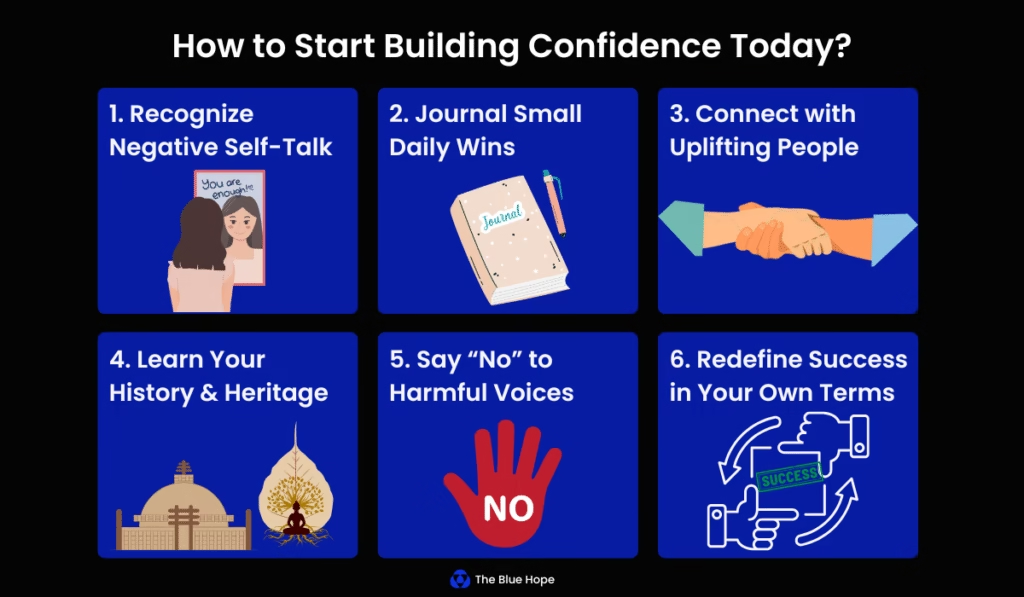
Addressing Common Concerns
Q1: How do I build confidence when I’ve always been told I’m not good enough?
Start by questioning the source of these messages. Who benefits from you believing you’re not good enough? Recognize that these messages serve systems of power, not truth. Begin collecting evidence that contradicts these limiting beliefs. Each time you accomplish something—no matter how small—it becomes proof against the “not good enough” narrative.
Q2: What if I fail and prove my critics right?
This fear keeps many Bahujans from even trying. Remember that failure is universal—everyone fails. The difference is that when people from privileged groups fail, it’s seen as an individual experience, while marginalized people often feel their failures reflect on their entire community. This is an unfair burden. Your failures don’t prove critics right; they simply prove you’re human and brave enough to try.
Q3: How do I stay motivated when the odds are against me
Connect with the larger purpose behind your goals. Are you pursuing education to create opportunities for your family? Working toward leadership to ensure voices like yours are represented? When your motivation connects to something bigger than personal success, it becomes more resilient against setbacks.
Also, break down your journey into smaller milestones. Celebrating these smaller victories provides the motivation to continue toward larger goals.
Q4: Can I ever unlearn the self-doubt I’ve grown up with?
Yes, absolutely. Our brains remain adaptable throughout our lives—a concept called neuroplasticity. Just as you learned self-doubt through repeated messages, you can unlearn it through consistent counter-experiences and new thought patterns. This doesn’t happen overnight, but with practice, new confidence pathways can become your default.
Dispelling Myths About Confidence
Myth 1: Confidence is something you’re born with.
Truth: Confidence is built, not born. Even the most seemingly self-assured people have developed their confidence through experiences, support systems, and deliberate practice. The difference is that society often provides more confidence-building opportunities and positive reinforcement to certain groups.
Myth 2: Confidence means never feeling doubt or fear.
Truth: Confident people feel doubt and fear just like everyone else. The difference is they’ve developed tools to act despite these feelings. Confidence isn’t the absence of doubt—it’s the ability to move forward alongside it.
Myth 3: You need external validation to feel confident.
Truth: While recognition feels good, sustainable confidence comes from internal validation. Learning to acknowledge your own efforts, growth, and achievements—even when others don’t—builds a more resilient form of confidence that can withstand external criticism.
Myth 4: Confidence looks the same for everyone.
Truth: Confidence expressions vary across cultures and personalities. Western societies often equate confidence with assertiveness and verbal expression, but confidence can also look like quiet certainty, thoughtful listening, or collaborative leadership. Honor your authentic expression of confidence rather than trying to fit someone else’s model.
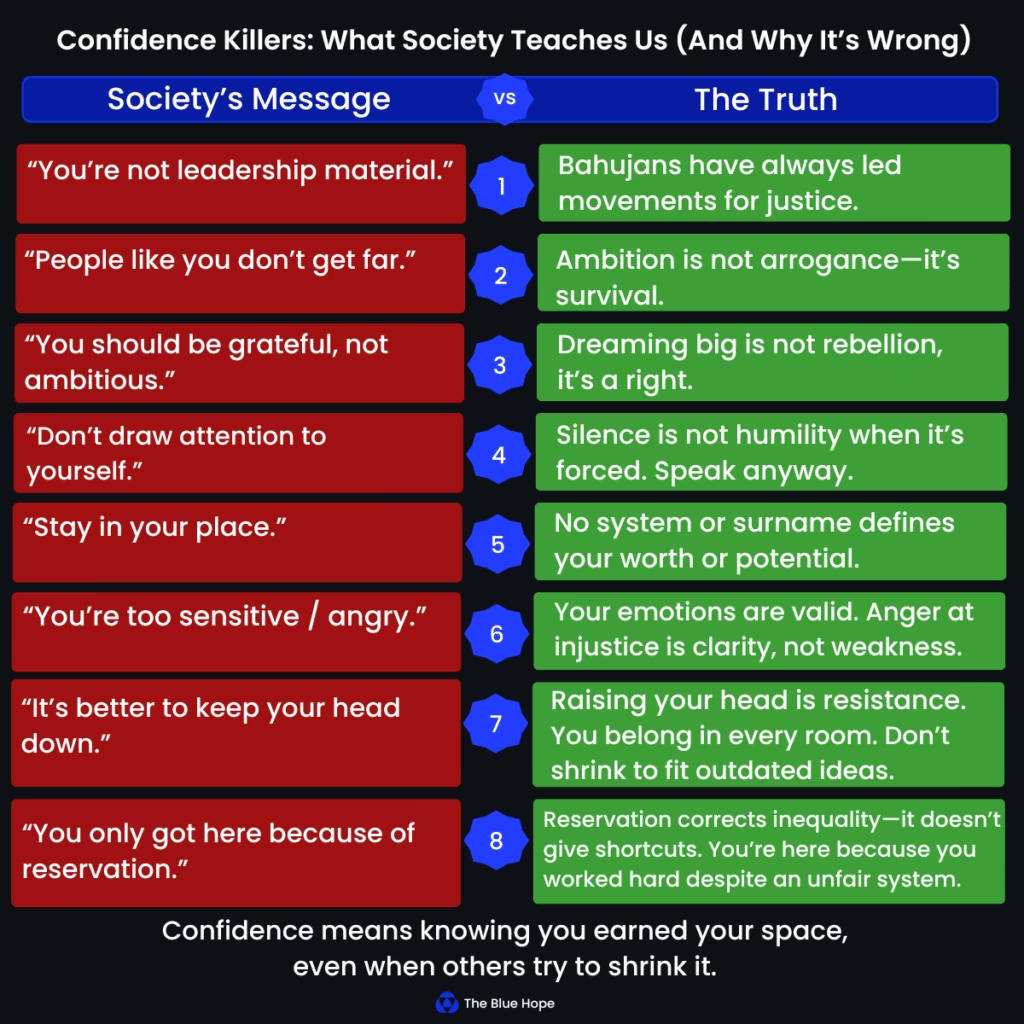
Creating Systemic Change While Building Personal Confidence
While this article focuses on building personal confidence, it’s important to acknowledge that the real problem lies in systems designed to create self-doubt in marginalized communities. As you build your own confidence, consider how you might contribute to dismantling these systems:
- Mentor others from your community, providing the support you wish you’d had
- Speak up about exclusive practices in your workplace or educational institution
- Create spaces specifically designed to nurture confidence in Bahujan youth
- Challenge stereotypical representations when you encounter them
- Share your story, as your journey can become someone else’s roadmap
Remember that building your confidence isn’t just a personal victory—it’s an act of resistance against systems that benefit from your self-doubt.
The Path Forward: Confidence as Liberation
Building confidence when society sets you up to fail isn’t easy, but it is possible. It requires recognizing the external forces that create self-doubt, deliberately practicing new thought patterns, surrounding yourself with supportive community, and celebrating your progress along the way.
Your worth has never been determined by society’s limited expectations. The very systems that create obstacles for Bahujans also fear what happens when you recognize your true capabilities. Your confidence isn’t just personal—it’s revolutionary. It challenges narratives that have kept power concentrated in the hands of a few for generations.
As you build confidence despite societal barriers, remember that you’re not just changing your own life—you’re creating ripples that will make the path easier for others who follow. Each time you speak up in a meeting, apply for a position that intimidates you, or simply refuse to shrink yourself to make others comfortable, you’re expanding possibilities for your entire community.
The journey to confidence isn’t linear. There will be days when doubt feels overwhelming and progress seems impossible. On those days, remember that confidence isn’t about never falling—it’s about knowing you can get back up. And you can. You always have.
Your voice matters. Your dreams matter. And your confidence—built against all odds—is one of the most powerful forces for change our world has ever known.

